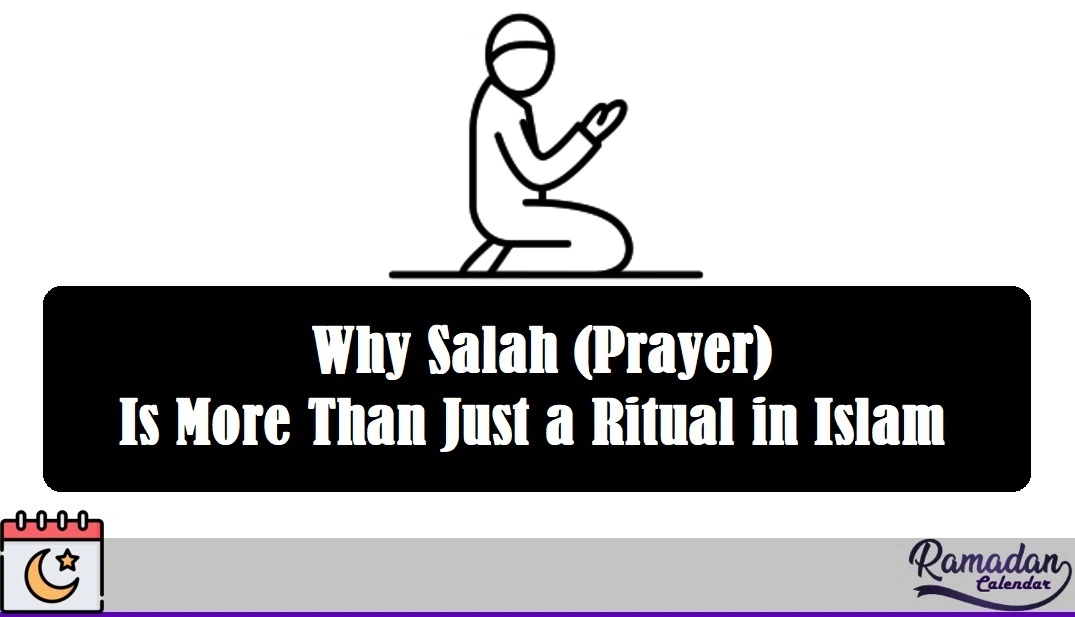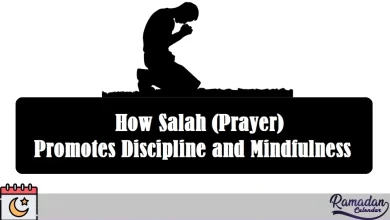Why Salah (Prayer) Is More Than Just a Ritual in Islam
Why Salah (Prayer) Is More Than Just a Ritual in Islam?

Why Salah (Prayer) Is More Than Just a Ritual in Islam: Salah, the Islamic act of prayer performed five times a day, is often viewed by outsiders—and even some Muslims—as merely a ritualistic obligation. However, this perception diminishes the profound depth, purpose, and transformative power of Salah. In Islam, Salah is far more than a routine or an obligation; it is a lifeline that connects a believer to their Creator. It is a source of spiritual nourishment, guidance, and discipline that transcends the physical motions to touch the very core of the human soul. Understanding why Salah is more than just a ritual reveals its essential role in the life of a Muslim and its unparalleled significance in Islam.
Salah as a Direct Connection with Allah
One of the most compelling aspects of Salah is its role as a direct line of communication between a believer and Allah. Unlike other acts of worship, Salah provides an intimate moment where the individual stands in the presence of the Creator. The Quran emphasizes this closeness:
“And establish prayer for My remembrance.” (Surah Taha, 20:14)
In a world filled with distractions and challenges, Salah offers a sacred pause, a moment to recalibrate and refocus on the ultimate purpose of life: serving Allah. It is during Salah that a believer confesses their dependence, seeks forgiveness, and expresses gratitude. This direct connection fosters a sense of peace, reassurance, and belonging that transcends worldly concerns.
A Daily Reminder of Purpose
The five daily prayers are strategically spaced throughout the day, serving as consistent reminders of a Muslim’s purpose and priorities. Each prayer time—from the quiet stillness of Fajr before dawn to the reflective moments of Isha at night—anchors the believer to their faith, breaking the monotony of daily life with moments of spiritual reflection.
The structured nature of Salah ensures that no matter how busy or chaotic life becomes, a Muslim is continually reminded of Allah’s presence. This regular engagement instills discipline and mindfulness, making Salah a powerful tool for personal growth and self-awareness.
More Than Physical Movements
To the untrained eye, Salah might appear as a series of repetitive physical movements: standing, bowing, and prostrating. However, these actions are imbued with profound meaning and purpose. Each posture symbolizes a different aspect of submission and humility before Allah:
- Standing (Qiyam): Reflects the dignity and responsibility of standing before Allah as His servant.
- Bowing (Ruku): Represents humility and acknowledgment of Allah’s greatness.
- Prostration (Sujood): The ultimate act of submission, symbolizing total surrender to Allah’s will.
These physical acts, when performed with understanding and sincerity, become a powerful expression of worship that engages the body, mind, and soul. The Prophet Muhammad (peace be upon him) highlighted this when he said:
“Pray as if you see Allah, and if you cannot see Him, know that He sees you.” (Sahih Bukhari)
This mindfulness transforms Salah into an act of spiritual elevation, far removed from mere ritual.
Salah as a Source of Discipline and Structure
The regularity of Salah instills discipline in a believer’s life. By adhering to specific times for prayer, Muslims develop a structured routine that prioritizes spiritual well-being over worldly distractions. This discipline extends beyond prayer, influencing how a believer approaches their responsibilities, time management, and relationships.
Furthermore, Salah teaches consistency and perseverance. Regardless of circumstances—whether in moments of joy or sorrow, ease or hardship—the Muslim is called to pray. This unwavering commitment builds resilience and fortitude, qualities essential for navigating life’s challenges.
A Path to Inner Peace and Spiritual Healing
In a world plagued by stress, anxiety, and materialism, Salah serves as a sanctuary for the soul. The act of turning to Allah in prayer provides solace and reassurance, reminding the believer that they are not alone in their struggles. Research has shown that acts of mindfulness and meditation can reduce stress—and Salah, with its combination of physical movements and focused recitation, offers similar benefits.
The Quran beautifully captures the calming effect of prayer:
“Indeed, in the remembrance of Allah do hearts find rest.” (Surah Ar-Ra‘d, 13:28)
Salah not only alleviates emotional burdens but also fosters a sense of hope and trust in Allah’s plan, helping believers face life’s trials with patience and gratitude.
Building a Sense of Community
While Salah has a deeply personal dimension, it also strengthens the bonds of community. Praying in congregation, especially at the mosque, fosters unity, equality, and brotherhood. The sight of rows of believers, regardless of their background or status, bowing and prostrating together is a powerful reminder of Islam’s emphasis on equality and collective worship.
The communal aspect of Salah reinforces the idea that Muslims are part of a larger ummah (community), bound by shared beliefs and values. This sense of belonging provides support and encouragement, particularly during challenging times.
Avoiding the Pitfall of Ritualism
While Salah is rich in spiritual significance, there is always the risk of it becoming a mechanical routine. When performed without mindfulness or understanding, Salah can lose its transformative power. The Prophet Muhammad (peace be upon him) cautioned against this, saying:
“A person may finish their prayer and only have a tenth, a ninth, an eighth, a seventh, a sixth, a fifth, a quarter, a third, or half of it rewarded.” (Sunan Abu Dawood)
To avoid this pitfall, believers must strive for khushu (focus and humility) in their prayers. This requires understanding the meanings of the verses and supplications, minimizing distractions, and approaching Salah with sincerity and devotion.
Conclusion
Salah is far more than a ritualistic act; it is the beating heart of a Muslim’s faith and the cornerstone of their spiritual life. It is a profound act of worship that connects the believer to Allah, instills discipline, and provides a source of inner peace and resilience. By performing Salah with mindfulness, sincerity, and understanding, Muslims can unlock its full potential, transforming it into a powerful tool for personal and spiritual growth. In a world filled with distractions and uncertainty, Salah stands as a timeless reminder of our purpose and our Creator’s infinite mercy and guidance.





